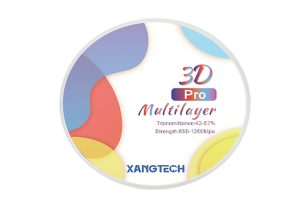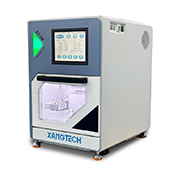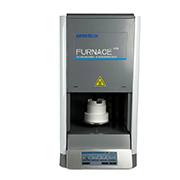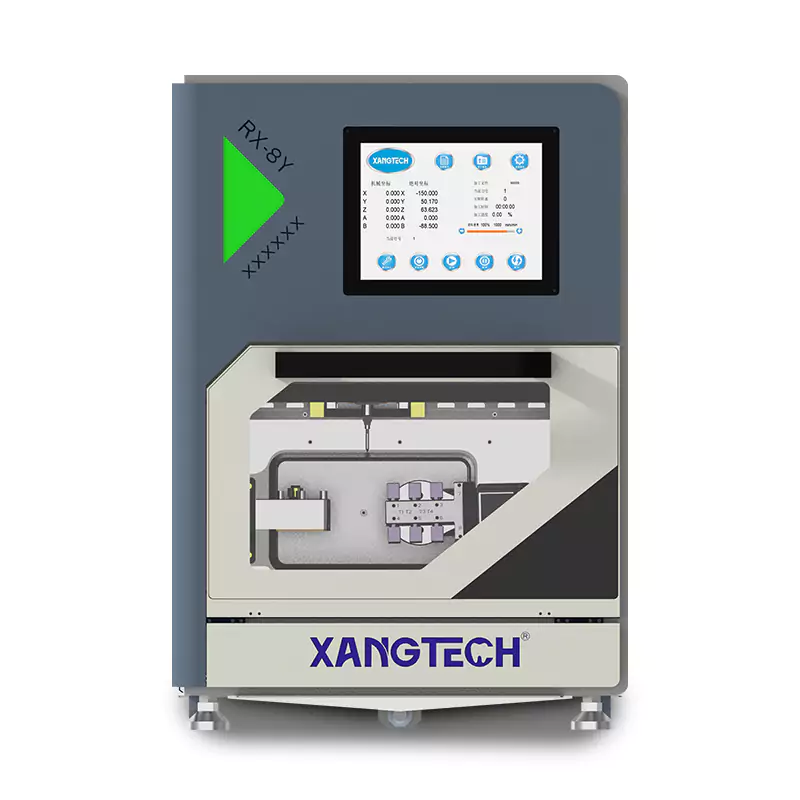Exploring the Technology Behind Dental Milling Machines
What are the basics of these machines? Nowadays, dental milling machines are used for transforming digital designs into exact dental prosthetics. The Machines use CAD/CAM technology to create crowns, bridges, dentures, as well as other products made of ceramic, composite, resins, and dental composites. The use of dental milling machines concerns precision, so it has to be as accurate as possible. Overall, the technology behind these machines appears to be important enough to consider, especially for professionals who want to move forward and expand their professional skills.
Key Components and Functions
Dental milling machines are constructed by milling spindles, tool holders, as well as the software system of the machine. Milling spindle rotations are used in dental milling machines to make the cuts accurate with the help of cutting tools. The installation and replacement of the instruments are ensured by the tool holders and they help in preserving the proper position of the milling tools. In combination with the machine’s hardware parts, the software system of the dental machine controls the process from start to finish. Sophisticated algorithms of the software system guarantee the high precision of the machine while cutting because of the sophisticated algorithms that define the features of the dental design. All the parts of the machine contribute to the high level of precision, and cutting techniques help in creating prosthetics of extreme precision for all cases of use.
Advances and Innovations in Recent Years
The advancements in dental milling technology have revolutionized the production of dental products. With the integration of new materials and precise machine designs, dental milling has become more efficient and accurate. XANGTECH’s RX-8Y Milling Machine is at the forefront of this technological progress. This high-speed milling machine utilizes CNC and multi-axis machining capabilities to deliver exceptional precision and quality in dental restorations. With its automated data mining and machine learning capabilities, the RX-8Y Milling Machine can easily detect and calibrate milling challenges, ensuring optimal results. XANGTECH’s RX-8Y Milling Machine is a smart and efficient solution for handling and learning dental milling data, enabling dental laboratories to deliver superior dental products with ease.
Accuracy and Precision in Dental Prosthetics Production
Defining Accuracy and Precision in Dental Milling
In the context of dental milling, precision is typically the number of micrometers a milling machine can use to detail surfaces and shapes. High precision is required to create restorations accurately in every way to restore a tooth according to its natural dental anatomy. Accuracy is more complex when it comes to dental milling as it is measured in how closely the finished product’s dimensions correspond with that of the initial design. Dental professionals make use of both requirements to ensure the final product can accommodate the needs of the patient anatomically as well as look at the parts.
Factors Affecting Precision Levels
Material Quality and Compatibility
The quality of materials also plays a critical role in the precision levels that can be achieved with dental milling machines. High-quality materials usually have better machining ability which translates to more precise cuts. Furthermore, the relationships between the machine and milling materials also require evaluation. There are materials which could require certain milling strategies, and the wrong combination could lead to inaccuracies and failures in this relationship later affecting the integrity of the prosthetics.
Machine Calibration and Maintenance
The necessity of regular calibration and maintenance of dental milling machines is crucial for ensuring that they remain on the highest possible levels of precision. Not performing these processes undercuts the effectiveness of the breakthrough technology – with no calibration, the machine may simply not produce the desired results, and without regular maintenance, the mechanical issues may become too significant and lead to deviations in the results of the process. It should be noted that it is essential for the dentist to have relevant machinery in working order, and ensuring that it is properly maintained is always a priority.
Software Integration and Control Systems
In terms of performance, dental milling machines are associated with the integration of advanced software and control systems. Specifically, sophisticated software solutions are utilized to handle even the most complex designs, coordinating machine movements with a precision that cannot be overlooked. At the same time, the immediate nature of these control systems implies that they allow for real-time monitoring and adjustments. In short, when a proper software response is combined with appropriate machine technology, the newly embraced approach allows for much more error-free work and, therefore, an improved level of overall production quality.
To sum up, the precision levels of milling machines for dental needs depend on a combination of interrelated aspects, including the quality of the material, calibration of the machine, and integration of the software. As technology advances, manufacturers like XANGTECH have created more advanced equipment that provides improved accuracy and, as a result, helps achieve higher-quality dental prosthetics. Professionals must be aware of this knowledge as it would allow them to select the best options for producing relevant restorations that meet the needs of patients.
Implications for Dental Prosthetics: A Closer Look at Outcomes
Cost-Effectiveness and Efficiency in Practices
High-precision dental milling machines integrated into dental practices help improve cost-effectiveness and operational performance. Because accurate dental prosthetic production results in fewer remakes, adjustments, and patient visits to redo a procedure, the technologies involved also help minimize the cost as an overhead. Because milling processes are effective and take less time as well, the patient time turnaround is also accelerated. So, dentists can address more clients and improve cost-effectiveness without sacrificing quality. As a natural result, the reputation of practices that are using these technologies successfully starts growing in the community.
Lastly, it is believed that the economic aspect is the most pronounced, as the front-end cost difference between traditional and digital models is rather small, while the profit from improved practice operation and quality is significant. Additionally, it should be noted that implementing advanced milling technology might also result in insurance incentives due to higher quality of work. Overall, investing in advanced milling technology allows for improving the operational efficiency of the dental practice and ensuring that all the required dental works are of high quality.
XANGTECH: Pioneering Advancements in Dental Milling Technology
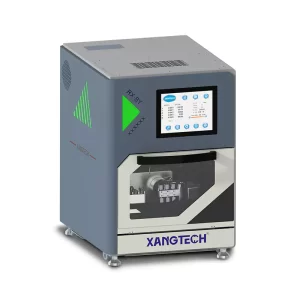
XANGTECH is one of the leading innovators in the dental milling machine industry, creating the most precise and efficient technology for these machines. Every one of XANGTECH’s state-of-the-art milling machines is engineered and designed to provide the highest level of accuracy in producing prosthetics. The user-friendly approach combined with a total dedication to the quality of engineering has been a major contribution to the dental industry. As a result, reliable and efficient devices have enabled dentists to improve their operations.
Overview of XANGTECH’s Contributions to the Field
XANGTECH already has a set of innovative industrial dental milling machines that rely on sophisticated technology to be impressively precise. The company uses advanced software solutions, imparting a high degree of control over the way the machinery works. Such a technology allows the machines to deliberately follow every digital drawing, meaning that all specifications are consistently met with precision. Also, the organization’s substantial investments in research and development activities help to set new standards for performance and reliability.
XANGTECH has significantly influenced the field of dentistry by its creation of high-precision milling tools, which are vital for contouring and other tooth-repairing processes. In addition, the issue of machine stability was effectively addressed, and speed and efficiency have been enhanced for milling operations. Presently, this will undoubtedly simplify the job for dentists and ensure better, more expedient outcomes for patients.
The Role of Zirconia Sintering Furnace by XANGTECH
An improvement made by XANGTECH relates to using zirconia sintering furnace technology. Specifically, the technology in question assists in making high-strength dental prosthetics. In this process, sintering helps heat the zirconia materials, which causes their mechanical properties to become enhanced as a result of high temperatures. Consequently, dental restorations are not only aesthetically appealing but also durable and capable of withstanding daily pressure.
The possibility of integrating the zirconia sintering furnace with dental milling devices is another important aspect of a perfect production flow, which enables dental specialists to achieve the desired results without any complications related to the material. This fact proves again the primary goal of XANGTECH. To help dental professionals upgrade and reinforce their milling experience using tools meant to increase their ability and productivity.

